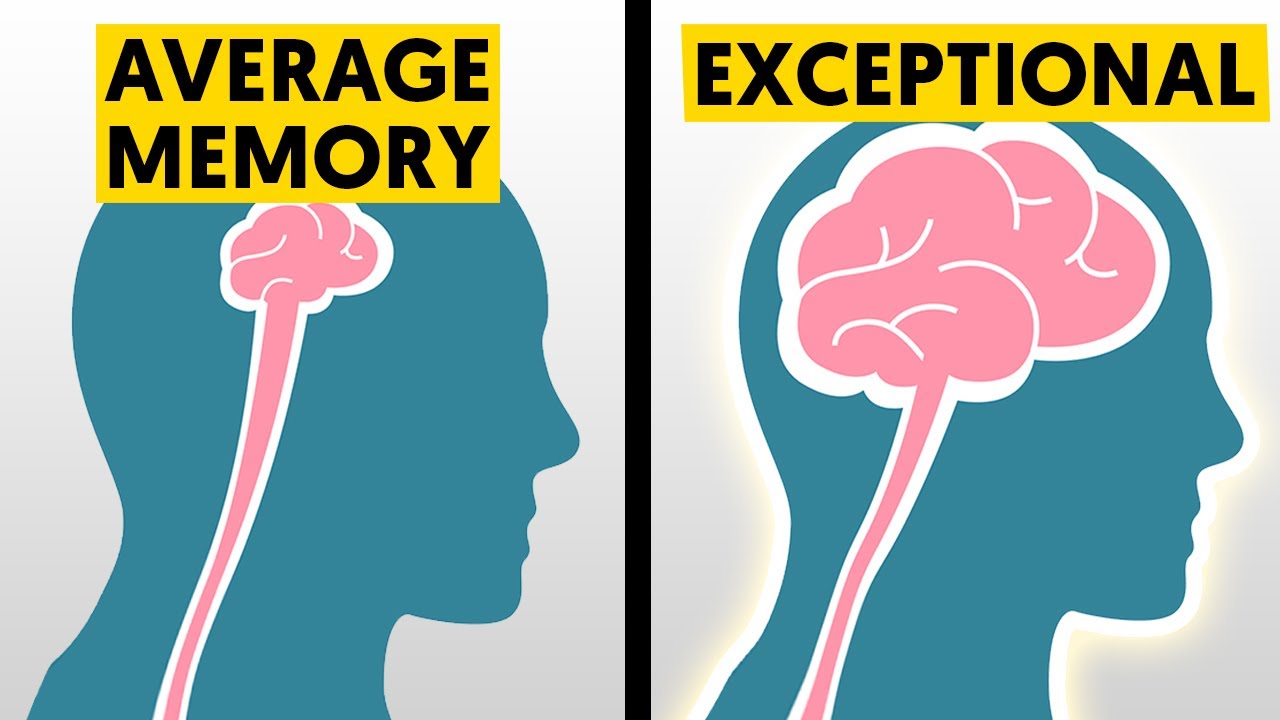How To Memorise Anything in 1 Minute
You want to memorize things easily and faster, say, in just 1 minute?
Great! You’ve come to the right video.
If you’re wondering how people with excellent memories do it so seemingly well, then here’s their secret–special techniques.
Yep, they’re not too different from average people like us.
They only use the right combination of techniques to help their minds memorize something.
You may find it hard to remember facts, lists, names, tasks, and so on.
However, with the right techniques, you can memorize nearly everything you want, and at a much faster rate at that.
Such methods include chunking and acronyms, and we will be discussing more on that next so continue watching.
Chunking
Chunking is about putting things together into groups.
For example, you can memorize your grocery list based on every shelf in the store.
Another instance is when you learn a new language.
You can learn new words related to a strong context like winter clothing, breakfast foods, and so on.
The human brain is automatically looking for patterns.
Through chunking, it allows the brain to store information in packets that are easy to remember.
Spaced repetition
Needless to say, it’s easier to remember something you read yesterday than one that you’ve read a year back.
The spaced repetition method is about reinforcing a bit of information in your mind the moment when it’s about to slip your mind.
To do this, use flashcards and organize them into three groups based on how it’s easy for you to remember.
So if you remember something vividly, test yourself using the same flashcard within ten minutes.
If you do remember, test yourself at a longer interval.
While there are lots of tools that claim to exercise spaced repetition, the best approach is to create your own flashcards.
NAME acronym
This method is used to remember names.
Still, you can also make use of it if you want to memorize other things.
N for notice means to notice how the names you want to memorize sound.
Just pay close attention to how the name sounds when spoken out loud.
A is for ask in which it teaches you how to remember names or things for an exam.
For instance, if you can’t seem to quite catch a name, wait for someone to repeat the name instead of asking for it.
If this doesn’t happen, that’s when you ask for the name to be repeated.
Consider expanding the topic, say, asking the person where the name came from.
This way, you’re compelled to pay more attention to the name.
The third letter is M which stands for mention.
It’s about repeating that name you’ve just heard.
Aside from letting it sink into your memory, it helps you with the right pronunciation of the name.
Exercise
Working out is good for the body as much as it’s good for our brain.
Studies have revealed that exercise helps improve learning and memory.
So, if you want to memorize something but aren’t making any progress, walk it off or squeeze some time for a quick workout session.
A simple 15-minute session can already improve your memory and cognitive processing.
Write it over and over
It may be too much work to write down the same thing over and over, but this actually helps a lot with your memory recall.
Research has shown that listing out facts or information enhances your ability to memorize them instead of just passively learning them by re-reading.
You’d never know unless you try.
Don’t undermine the power of those methods.
See for yourself and let us know how it went for you.
Just comment below!



![[ID: Hx_A0iLhdr8] Youtube Automatic](https://bizimtube.com/wp-content/uploads/2021/03/id-hxa0ilhdr8-youtube-automatic-236x133.jpg)
![[ID: lp7w0UmpuIs] Youtube Automatic](https://bizimtube.com/wp-content/uploads/2021/03/id-lp7w0umpuis-youtube-automatic-236x133.jpg)
![[ID: s2-7T1TH-lY] Youtube Automatic](https://bizimtube.com/wp-content/uploads/2021/03/id-s2-7t1th-ly-youtube-automatic-236x133.jpg)
![[ID: b_lakC9M4UQ] Youtube Automatic](https://bizimtube.com/wp-content/uploads/2021/03/id-blakc9m4uq-youtube-automatic-236x133.jpg)
![[ID: r44yl6nPONs] Youtube Automatic](https://bizimtube.com/wp-content/uploads/2021/03/id-r44yl6npons-youtube-automatic-236x133.jpg)
![[ID: pAwto1YQjA8] Youtube Automatic](https://bizimtube.com/wp-content/uploads/2021/03/id-pawto1yqja8-youtube-automatic-236x133.jpg)
![[ID: XETG8azHiv4] Youtube Automatic](https://bizimtube.com/wp-content/uploads/2021/03/id-xetg8azhiv4-youtube-automatic-236x133.jpg)
![[ID: f3G_-S_2HUk] Youtube Automatic](https://bizimtube.com/wp-content/uploads/2021/03/id-f3g-s2huk-youtube-automatic-236x133.jpg)
![[ID: G8oWns54snA] Youtube Automatic](https://bizimtube.com/wp-content/uploads/2021/03/id-g8owns54sna-youtube-automatic-236x133.jpg)
![[ID: s0lIFXhu6aw] Youtube Automatic](https://bizimtube.com/wp-content/uploads/2021/03/id-s0lifxhu6aw-youtube-automatic-236x133.jpg)
![[ID: 4UTd2Ev8eYg] Youtube Automatic](https://bizimtube.com/wp-content/uploads/2021/03/id-4utd2ev8eyg-youtube-automatic-236x133.jpg)
![[ID: RKBGBjVJBxQ] Youtube Automatic](https://bizimtube.com/wp-content/uploads/2021/03/id-rkbgbjvjbxq-youtube-automatic-236x133.jpg)